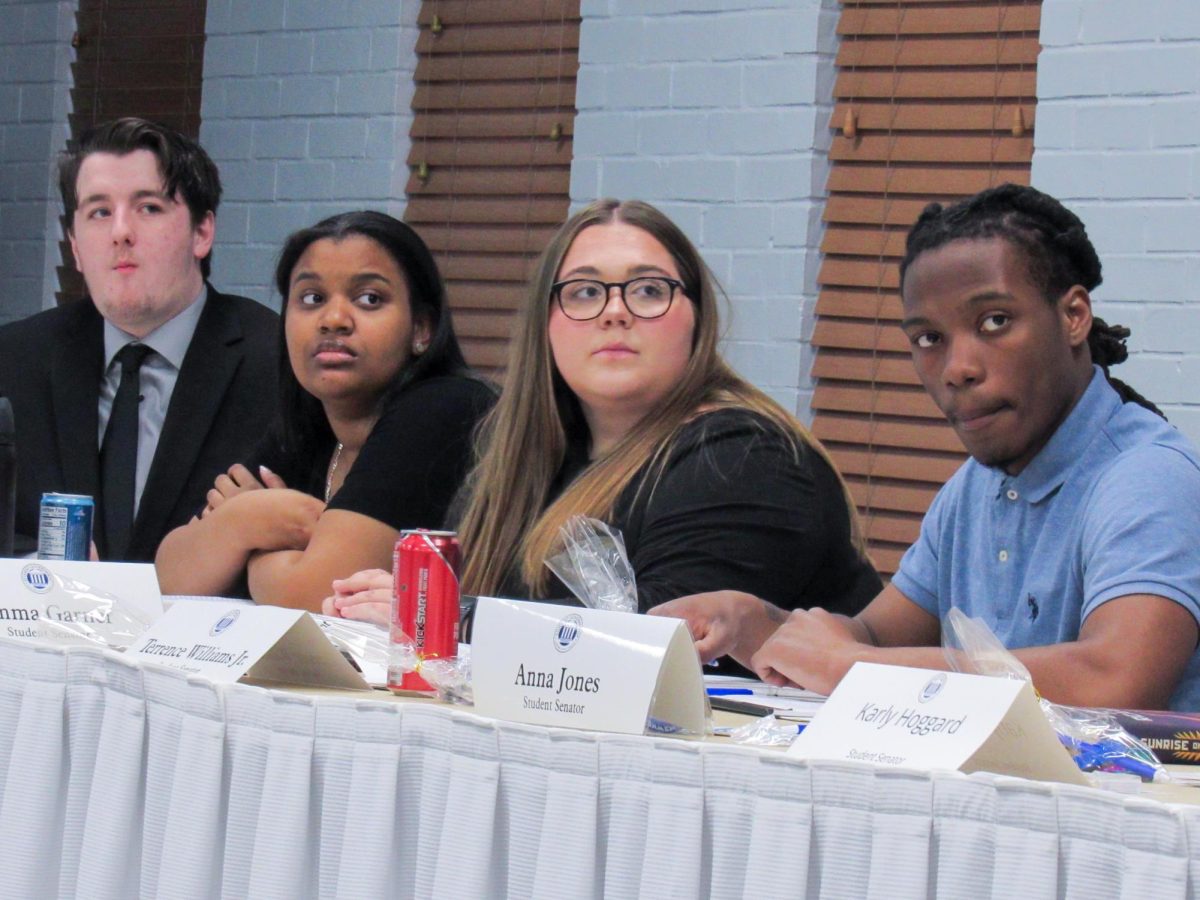Love has no construct; break “traditions”
November 27, 2017
When you hear the word love you generally think of cheesy, heteronormative romantic films, tacky red Hallmark cards and “tying the knot.”
For generations we have been building a construct of what love is or what it is supposed to be, starting with “dates,” what each date means, when to say the “L word” and what gifts we should give our partners to show appreciation to them.
These constructs are materialistic, and as our generation strays away from earlier traditions of relationships, people see this as the decaying idea of love.
As our generation changes the perceptions of the “L word,” the previous ones critique our take on relationships and see getting married as a peak in our lives.
I think our generation has become more career-oriented rather than focusing on marriage or monogamous relationships, and personally, I think that is a step in the right direction.
While indulging in a love life is great, I do not see a problem with focusing on ourselves first rather than viewing a piece of paper that says you are married as a highly praised accomplishment.
One of my great grandmothers got married and had kids when she was 16 years old.
At this time, it seemed like many Americans started families sooner after or in high school rather than later and I think now we know there is no need to rush.
People also did not have the option to get a divorce, even if they were not happy in the marriage. I think we owe ourselves to commit to happiness instead of viewing a piece of paper as sacred and unable to be broken.
Growing up I also noticed that I had several friends and other people my age whose parents were divorced or separated, myself included, and there is nothing wrong with that.
These ideas contribute to the stigma that children with separated parents are not receiving the same love and are broken, which is also very untrue.
For women specifically, I think this change in expectation has been beneficial. Instead of feeling like they need to get married, have children and be a stay at home mom, they have the option of choosing whatever route they want.
It is understandable to keep traditions alive but to make these traditions turn into the standard for a human emotion is unfair and can become problematic.
Even with all of these changes with relationships, we still seem to cling to these traditions to create stigmas that say being alone means being unhappy.
Putting constructs on such a connection is limiting and exclusive to people who do not want or need to indulge in relationships or those who do not follow the “standards” of how to fall, or be, in love.
Going back to the current ideas of love, more people meet online and the dating culture seems to be surrounded by the idea of “talking” which means you are dedicated to giving your emotional vulnerability to one person.
These ideas also shame people who want to explore open relationships or any other polyamorous ideas.
Meeting people online and hanging out versus a formal date are two concepts that more traditional people do not like when it comes to dating.
It seems like there is a competitive mindset when it comes to relationships and love that is very capitalist; who can buy the biggest thing to show the most love and appreciation?
Even though it is nice to show thanks through gifts, there is no contest or visual measurement of love that can be bought. These things can only be experienced.
Change is hard, and no matter how much we do not like to admit it, people like to faction and cling to the old.
I think people need to realize love (and any other emotion) is a fluid idea that you have to let evolve and synchronize for you to fully experience and this idea is adapted differently to each person.
Abbey Whittington is a junior journalism major and can be reached at 581-2812 or anwhittington@eiu.edu.













![[Thumbnail Edition] Junior right-handed Pitcher Lukas Touma catches at the game against Bradley University Tuesday](https://www.dailyeasternnews.com/wp-content/uploads/2025/03/MBSN_14_O-e1743293284377-1200x670.jpg)

![[Thumbnail Edition] Senior Foward Macy McGlone, getsw the ball and gets the point during the first half of the game aginst Western Illinois University,, Eastern Illinois University Lost to Western Illinois University Thursday March 6 20205, 78-75 EIU lost making it the end of their season](https://www.dailyeasternnews.com/wp-content/uploads/2025/03/WBB_OVC_03_O-1-e1743361637111-1200x614.jpg)







































![The Weeklings lead guitarist John Merjave [Left] and guitarist Bob Burger [Right] perform "I Am the Walrus" at The Weeklings Beatles Bash concert in the Dvorak Concert Hall on Saturday.](https://www.dailyeasternnews.com/wp-content/uploads/2025/03/WL_01_O-1200x900.jpg)
![The team listens as its captain Patience Cox [Number 25] lectures to them about what's appropriate to talk about through practice during "The Wolves" on Thursday, March 6, in the Black Box Theatre in the Doudna Fine Arts Center in Charleston, Ill.](https://www.dailyeasternnews.com/wp-content/uploads/2025/03/WolvesPre-12-1200x800.jpg)
















